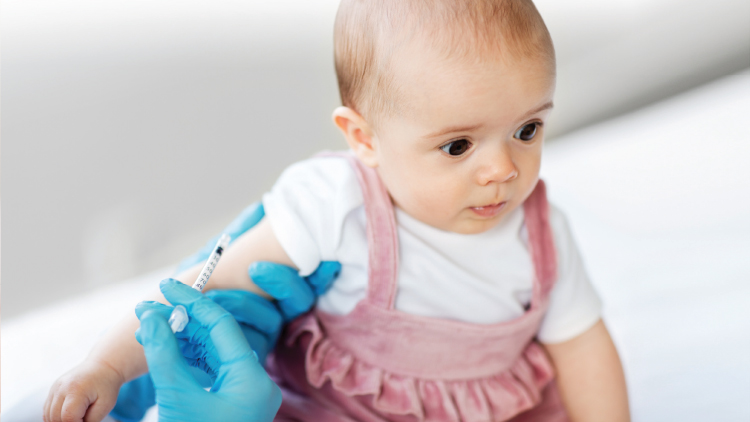Immunization and Your Child
Vaccines are a popular topic right now. Most people are looking forward to finally receiving a COVID-19 vaccine. We now have hope to keep going as we move closer to having a social life again! It remains essential, especially now, that we don’t forget the regular vaccines that keep us and our children healthy.
How does a vaccine work?
The active part of the vaccine is the antigen (weakened or killed bacteria or virus parts). The antigen works with the body’s natural defenses by causing it to produce antibodies to fight and destroy the infecting germs. It boosts the body’s immune system, like a practice run, before the body ever meets the real disease. If this immune system is exposed to the disease in the future, the body then has immune memory to launch defense. Disease is prevented or only a mild case occurs.
Why is immunization important?
Vaccines are the most effective medical intervention protecting your child from many dangerous and deadly diseases that still exist in our community. There are no cures or treatments for these diseases. Prevention is the only way to be safe. Through vaccination, we can protect the vulnerable people in our society who cannot be vaccinated or do not respond to immunization.
What about side-effects?
Common side-effects include soreness, swelling and redness at the injection site, fatigue, headache, crankiness and low-grade fever. These are all signs that the vaccine is working! You will be asked to wait around for at least 15 minutes to ensure that serious, EXTREMELY RARE side-effects such as allergy or seizure do not occur.
You can support your child by using topical anaesthetic (ask a pharmacist), acting normally, distracting them with toys, stories or blowing bubbles, breastfeeding before and during the procedure or giving sugar water one to two minutes prior via syringe or soother. If after six hours, your child still seems uncomfortable, you can give ibuprophen or acetaminophen as directed by your health care provider. Do not give these medications before vaccination as they can interfere with the immune response.
What about the COVID-19 Vaccine?
COVID-19 vaccines have not yet been studied in children and it will be some time before they will be able to receive it. Fortunately, young children have done very well throughout the pandemic.
For more information:
- speak to your health care provider
- call the health unit at 519-663-5317
- see the resources below
https://www.ontario.ca/page/vaccines
https://www.caringforkids.cps.ca/handouts/immunization
Government of Canada. (2021). Vaccines for children: Deciding to vaccinate. Retrieved from https://www.canada.ca/en/public-health/services/vaccination-children.html
Middlesex-London Health Unit. (2020). Vaccine Information. Retrieved from https://www.healthunit.com/vaccine-information
Immunize Canada. (2019). Pain management during immunizations for children. Retrieved from https://immunize.ca/pain-management-children
Ontario Ministry of Health. (2020). COVID-19 about vaccines. Retrieved from http://www.health.gov.on.ca/en/pro/programs/publichealth/coronavirus/docs/vaccine/COVID-19_about_vaccines.pdf
Heather Bywaters RN PHN
Middlesex-London Health Unit
For the Middlesex-London Community Early Years Partnership














